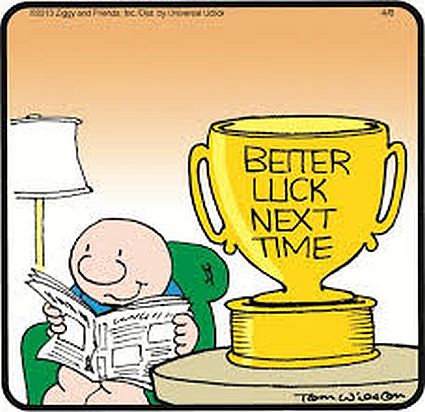Adam Grant posted an editorial in the NY Times, No, You Don’t Get An A For Effort. It’s fascinating, but only focuses on part of what I see in too many organizations. As we go into the New Year, perhaps it’s useful to look at these and reflect on what we might want to change as we go into 2025 (Since we seem to look at the New Year as the event that grants us permission to improve.)
I’ll rephrase his positioning and add two more individual and organizational behaviors I observe: Accomplishment, Trying Hard (Effort), Participation, Apathy.
Achievement is a characteristic of top performers, who may, ironically, not be the hardest workers. People driven by achievement are intensely goal focused. They do whatever it takes to reach their goals. When they lose, they learn from the loss, driven to improve and never repeat the loss. They face difficult situations and are driven to figure out how to overcome obstacles in the way of their achievement. They don’t tend to measure how hard they work, they just do what it takes to achieve their goals. And most are focused on personal goals that are far greater than their quotas and other performance metrics.
Then there are those that put in the hours, they do the work, they are known for Trying Hard. Referring to his students, they are those that think they should get “A’s for effort.” They are instilled with strong work ethic, they probably put in longer hours than anyone. But somehow they struggle, too often failing, to achieve goals. The problem is perseverance and hard work doesn’t necessarily produce results.
For some, the achievement is their hard work and efforts. They become the end. For others in this category, they may want to achieve, they just don’t know how, regardless of the effort. Perhaps they are in the wrong job. Perhaps they need coaching, training, or other developmental activities. It’s not that they don’t want to do the work, the work they do isn’t producing the results needed. Helping them figure this out, helping them change is, perhaps the greatest opportunity for improving performance.
Then there are the people that show up, they Participate. They believe they should be recognized for this. We all know the stories of children’s sports where everyone got a trophy, not just the teams that won the events. And, the trophies for those that won started having less meaning because everyone else got a trophy. Or, I’m old enough to remember when a part of my report card was based on my attendance. While most of the report card were grades for accomplishments in English, Math, Science, History, PE (OK, I got bad grades in that), the attendance grade was just acknowledging that I showed up.
Participators see the accomplishment in being part of the team or the activities. Doing what they can, sometimes doing just enough. They may be extremely enthusiastic in their participation, cheering everyone else along.
Closely related to Participation is something I call Apathy. This has a quality of being something less than showing up. While these may show up, physically, they are actively engaged and uncaring. They display indifference, lack of curiosity, or avoidance of responsibility. Their minds and energies are elsewhere. For example, they may be doing a job just to get a paycheck. But their attention, focus, and energy is elsewhere. And in those areas, they may have great Accomplishments, but not in the roles where we have hired them.
These roles aren’t unique to business, they pervade all aspects of society. But understanding these and their impact on our organizational goals is important.
Each of us probably display each of these in different situations. For example, in my work, I’m a driven Achiever. In my sports pursuits, I don’t have a lot of ability but I get great joy out of trying very hard and pushing myself. (Though the older I get, I see myself becoming an Achiever as I finish in the top 5 of my age group–who cares there are only 5 in my age group).
There are a lot of activities where I revel in my participation. For example events in my neighborhood. or certain events.
Then, being honest, there are a few activities in which I am an apathetic participant, much of my social media experience is becoming this.
In most of these (with the exception of some Trying Hard activities) my Achiever mindset dominates. I minimize participation or apathy. These are a waste of my time.
I suspect, I’m not unusual. The trick for each of us is to find where we are driven to Achieve. The roles in which we are driven to achieve. The organizations in which we are encouraged and supported to Achieve. And to minimize or eliminate investing our time in any other role.
From an organizational point of view, we only want Achievers! If we want to maximize our growth, our performance in the markets, our abilities to serve our customers, we must have cultures of Achievement.
Sadly, I see too many organizations missing this, as a result, they miss achieving their full potential.
Afterword: Attached is the AI generated discussion of this post. It’s pretty good, certainly worth listening to. It has some interesting interpretations, some of which I’m not in agreement with. Enjoy!

Leave a Reply